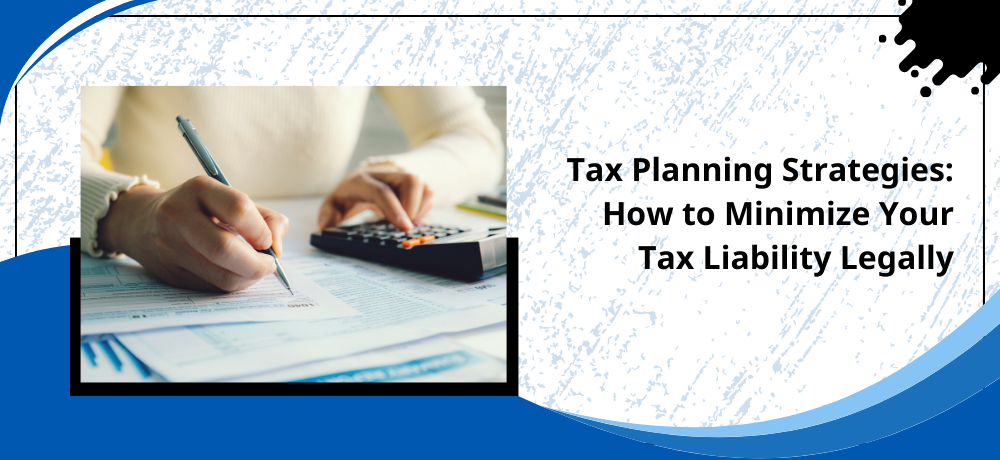Tax Planning Strategies: How to Minimize Your Tax Liability Legally

As a business owner or an individual taxpayer, one thing that's always top of mind is taxes. Nobody wants to pay more taxes than they have to, and that's where tax planning comes into play. In this blog, I'll walk you through the essential strategies to legally minimize your tax liability, helping you keep more of your hard-earned money where it belongs – in your pocket.
Tax-Efficient Investment Allocation:
Diversify Your Investments: Spread your investments across different asset classes, such as stocks, bonds, and real estate, to take advantage of varying tax rules and minimize your overall tax liability.
Utilize Tax-Advantaged Accounts: Contribute to tax-advantaged accounts like Registered Retirement Savings Plans (RRSPs) and Tax-Free Savings Accounts (TFSAs) to reduce taxable income and enjoy tax-deferred or tax-free growth on your investments.
Tax-Loss Harvesting: Offset capital gains by strategically selling investments that have experienced losses, reducing your taxable income in the process.
Tax-Deferred Retirement Savings:
Maximize Retirement Contributions: Contribute the maximum allowed amount to registered retirement accounts like RRSPs to lower your annual taxable income.
Consider TFSA Contributions: Explore the benefits of Tax-Free Savings Accounts (TFSAs) for tax-free withdrawals in retirement.
Tax-Efficient Estate Planning:
Gifting Strategies: Take advantage of Canada's gifting rules, which allow for tax-efficient wealth transfer, including the annual gift tax exclusion.
Establish Trusts: Create trusts like family trusts or testamentary trusts to minimize estate taxes and control the distribution of assets in accordance with Canadian tax regulations.
Business Tax Planning:
Choose the Right Business Structure: Select a business entity, such as a sole proprietorship, partnership, or corporation, that aligns with your tax goals and minimizes your overall tax burden under Canadian tax laws.
Expense Deductions: Keep meticulous records of business expenses and take advantage of tax deductions and credits available to your industry in Canada.
Tax Credits and Deductions:
Explore Canadian Tax Credits: Research and claim tax credits you qualify for, such as the Canada Child Benefit, Childcare Expense Deduction, and tuition-related credits.
Itemize Deductions: Evaluate whether itemizing deductions or taking the standard deduction benefits you more under Canadian tax regulations. Common deductions include mortgage interest, medical expenses, and charitable contributions.
Tax-Efficient Charitable Giving:
Donate Appreciated Assets: Consider donating appreciated stocks, real estate, or other assets to charities in Canada to avoid capital gains taxes and receive a charitable donation tax credit.
Donor-Advised Funds: Support registered charities in Canada to maximize your charitable contributions and receive a tax receipt for your donations.
Tax planning is a complex but essential aspect of personal and business finance. By implementing these strategies, you can legally minimize your tax liability and keep more money for your future goals. Remember, effective tax planning often requires the expertise of a professional accountant who can help navigate the complexities of the tax code.
Get in touch with Michael H. Keltz, Chartered Professional Accountant, today!
Our expert team at Michael H. Keltz Chartered Professional Accountant can assist you with tax planning and ensure you're taking advantage of every opportunity to minimize your tax liability, please click here.
To learn more about what we do, please click here. To contact us, please click here or call us at (416) 482-4183.